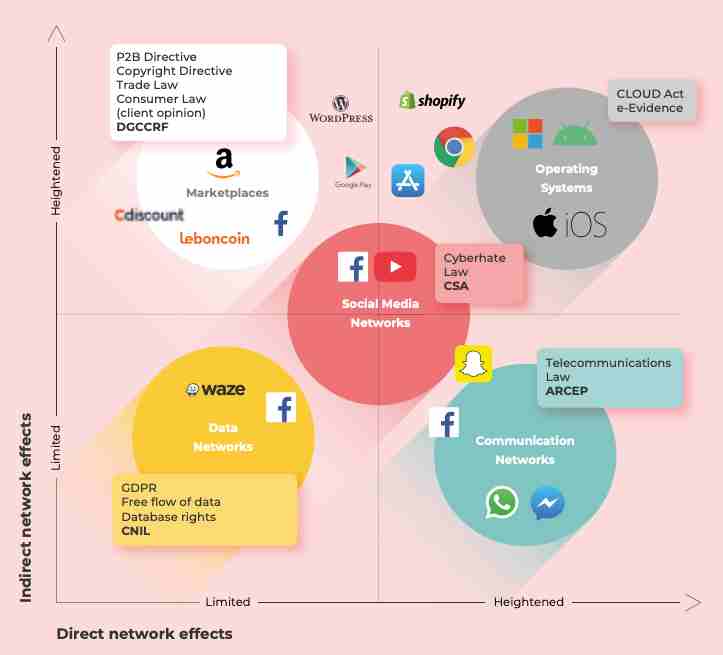Potential benefits of regulating digital platforms: why should you care? With just a few rules, we could make digital spaces fair for everyone. Imagine a world where you shop online with no fear of scams, where the games you play are fair, and no one has the power to misuse your data. It’s not a dream—it could be real with better platform rules. This isn’t just about stopping the bad stuff. It’s about boosting the good. Better data protection, fair play online, and more innovative, diverse tech options. Read on to see how regulation can change your digital world for the better.
Promoting Fair Competition and Protecting Consumers
Advancing Consumer Data Protection
You care about your online data, right? The stuff that makes you, you. Photos, chats, likes—all the bits that tell a story about your life. Big tech companies know a lot about you. Sometimes, more than your best friend does. With strong rules, we make sure these companies keep your details safe. No more waking up to find your data sold off to the highest bidder! We’re talking keeping your secrets safer than a squirrel’s nut stash in winter. More protection means you can surf, share, and shop without worry. And that’s what we all want, isn’t it?
By making sure companies respect your data, we help stop bad stuff. Like those creepy ads that follow you around the web. Those are the result of companies knowing too much. When we turn the tables, you take control.
Ensuring Fair Competition in the Digital Ecosystem
Competition is what makes businesses try harder, push further, and think bigger. Without it, big tech would squash anyone trying to bring new things to the table. But don’t fret! Protecting fair play online is what gets me up in the morning, ready to wrestle the digital monopoly monster. Regulating these giants means small businesses and new ideas get a chance to shine, too. It’s like giving everyone a fair go on the playground swings—not just the big kids.
We’re not just playing whack-a-mole with the rule breakers. We’re also making sure everyone plays by the book. This means all companies, big and small, can show the world what they’ve got. When we get it right, it’s a win-win. More choices for you and more folks making cool things while playing fair. Now that’s what I call leveling the playing field!
Enhancing User Experience and Safety
Strengthening User Safety on Internet Platforms
Let’s talk safe surfing. Every day, folks of all ages hop online, hunting for fun, news, or a good buy. But the web is also full of not-so-nice traps—like scams and mean folk hiding behind screens. How can we keep surfing fun and safe? That’s where rules for tech monsters come in—rules that keep our info safe and the baddies out.
Think about your own info—your name, where you live, or even what you like. It should be yours to share, not just taken. Rules make sure that’s the deal. Rules also keep things fair, so small shop owners can fight fair against the big fish. We all win when it’s a level game.
Rules help stop the spread of fibs too. Think how fast a fib can fly online. Now think how rules could cut those fibs’ wings. That’s keeping it real and safe.
Advancing Ethical Algorithms and Mitigating Misinformation
Got a minute? Let’s chat about brainy tech—like those super-smart computer plans that decide what you see online. They’re called algorithms, and they can be great helpers. But sometimes, they can lead us down some murky paths or show us stuff that’s just plain wrong. Not cool, right?
What if we taught these algorithms some manners? Like teaching them to play fair and show all sides of a story. Doing that, we get to see the big picture, not just one tiny piece, and we get to choose what we trust. That’s good news for all of us, helping us stay informed and on top of our game.
So, why should you care about rules for the digital world? Imagine a playground where the slides are smooth, the swings set just right, and the ground soft for those whoopsie-daisy falls. That’s what regulation does. It keeps the online world fun and safe, just like your favorite park. It makes sure everyone gets a fair shake, and the truth gets the spotlight, not just the loudest shout.
With smart rules, we get to enjoy the web without worry. We know our personal stuff is locked tight, and we get the real scoop, not just make-believe. What’s not to love about safe, honest net-surfing? It’s all about making the online world a friendlier space, where everyone’s welcome and truth wins the day. And that’s a game-changer, pals.
Driving Innovation and Diversity in the Digital Market
Stimulating Innovation in the Technology Sector
Tight control over tech giants sparks new ideas. It forces them to create better products for us. Strong rules make them share more with smaller tech firms. This means more tools and apps for consumers. If big tech can’t hog all the play space, other companies get to thrive. It’s like a school playground. When the big kids play fair, the little kids get to have fun too.
Rules also mean our data stays safer online. Tech companies have to protect it. That keeps you and me safe from hackers. This means we can share and shop with less worry. When we know our personal info is secure, that’s a big win for everyone.
Supporting Digital Market Diversity and Third-party Developer Opportunities
Just picture a mall with different shops. Now, think of the digital market like that mall. Oversight makes sure that smaller shops get a spot next to big names. This is great for all the tech wizards out there. They get a chance to show their magic.
When third-party developers have space to grow, they bring us more choices. Fresh apps and services pop up. This can help us do stuff easier and faster. It’s super for small businesses too. They can reach out to us online without getting squashed by the big tech monsters.
Fair rules also stop the spread of lies online. Social media must check facts better. This is important so that we all get the real story. It keeps our heads clear of made-up stuff. And it’s really key to stop the bad folks from leading us astray.
When everything’s fair, we see more bright sparks in technology. Cool new ideas come to life. This makes our digital world way more colorful and fun. It’s about giving all kids on the block a fair shot. This way, they can dazzle us with their brilliant thoughts.
Oversight helps out with fair play in ads too. We need to see what’s an ad and what’s not. That way, we know what others are trying to sell us. Clear ads also help businesses. They can show off their stuff on an even playing field.
Staying sharp online matters a lot. It’s not just about having fun. It’s about making sure we can trust what we see and use. Rules help keep everyone honest. And that’s something we all need to care about.
Keeping our digital playground fair, safe, and open for fresh ideas. That’s the way to go. And with the right push, we can all end up winning. So, next time we log on, we might find new things to explore. All because we made sure that everyone plays nice.
Structuring Oversight and Transparency in Digital Services
Enforcing Transparent Digital Advertising and Platform Neutrality
Let’s chat about keeping digital ads clear and fair. First off, why care about this? Well, you know when you search online and ads pop up? Sometimes they’re sneaky. They blend in, looking like regular search results. That’s not fair, is it? Regulating this helps you see what’s an ad and what’s not.
But hang on, what’s platform neutrality? It’s like every business on a platform gets the same chance to shine, no favorites. So whether it’s a giant company or a tiny shop, they all get a fair go. It means you get more choices. It stops big players from pushing everyone else out.
Developing Equitable Regulatory Frameworks for Digital Services
Next up, making rules fair for all digital services. This is huge. It means rules that work for the big and small folk. What does ‘equitable’ mean, anyway? It’s about being fair and just. Everyone, big or small, should play by the same rules.
These frameworks pave the way for new ideas and businesses. They help to break down barriers, making sure no single company hogs all the control. This helps everyone. Budding businesses get a fair chance. Users like you get more cool stuff to pick from.
Take data privacy for example. You want your info safe, right? With good rules, companies must protect your data. They have to be honest about what they’re doing with it too. That’s more power to you.
What about stopping lies from spreading online? Or making sure online games are safe for kids? Right, this is where rules jump in too. They work to keep the web a place we can all trust.
And here’s the cool part – better rules can actually help make technology even better. Imagine safer, smarter gadgets and apps. Imagine a web where everyone can win. Sure, it takes work. But with everyone on board, from law-makers to businesses, we can get there.
So, why should you care? Because these rules shape how we live and play online. They’re about making sure you’re safe, you have awesome stuff to pick from, and big companies play fair. Sounds good? You bet!
In this post, we looked at big ideas for the digital world. First, we talked about keeping your data safe and making sure no one has unfair advantage online. We want to make sure everyone plays by the same rules. Next, we turned to how we can make the internet safer and better for you. We want to stop bad information and make online spaces where you and your friends can feel safe.
Then, we discussed ways to bring new ideas to life in tech and help all kinds of businesses grow. If we do this well, you’ll have more choices and great new tech to use. Last, we covered how we keep an eye on digital ads and ensure rules are fair for everyone.
My final thought: It’s important to build a digital future where you feel safe, have choices, and everyone has a fair shot. Let’s make sure we get there together.
Q&A :
What are the key advantages of regulating digital platforms?
Regulating digital platforms ensures that there is a balanced playing field for both small and large companies, which can stimulate healthy competition and innovation. Regulations also aim to protect consumer data and privacy, while addressing issues like misinformation and cyberbullying, thus maintaining a safer online environment.
How does regulation impact consumer trust in digital platforms?
When digital platforms operate under clear regulations, it can significantly enhance consumer trust. Users are more likely to engage with platforms that they know are following laws designed to protect their personal information and provide them with credible content, which in turn can lead to increased platform loyalty and user retention.
Can regulation of digital platforms improve market transparency?
Yes, by enforcing regulatory standards, digital platforms are often required to disclose more information about their operations, data handling practices, and algorithms, which enhances market transparency. This transparency not only empowers consumers to make informed decisions but also encourages fair competition among service providers.
In what ways do regulations influence content moderation on digital platforms?
Regulations can mandate digital platforms to implement stricter content moderation guidelines to combat harmful or illegal content online. This includes deploying advanced technology and human oversight to detect and mitigate issues like hate speech, extremism, or fake news, resulting in a safer online community.
How might regulating digital platforms affect innovation in the tech industry?
Regulation can have a dual effect on innovation within the tech industry. While some view it as a restrictive force that may hinder creativity and growth, it can also promote responsible innovation by setting standards that ensure new developments are both ethically sound and socially beneficial. The challenge lies in crafting regulations that protect consumers without stifling innovation.
